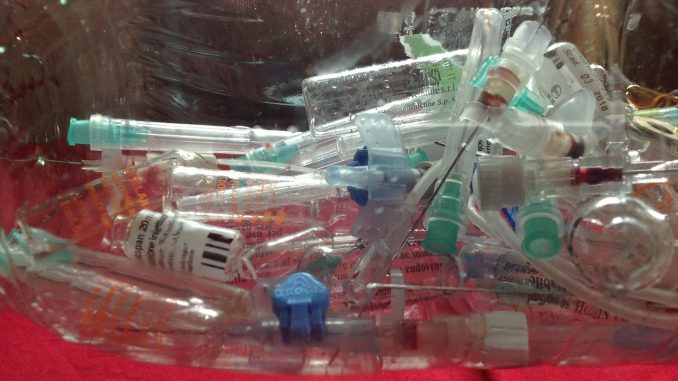
Needle exchange programs are designed to provide clean syringes to people who use drugs. But, over the years, they have been a source of ongoing controversy and debate.
While these programs are rooted in harm reduction principles aimed at minimising the negative health consequences associated with injection drug use, they often face resistance and criticism. Here are some of the common concerns about needle exchange programs, as well as the harm reduction benefits they bring to communities.
The controversies of needle exchange programs
Moral and ethical concerns:
Needle exchange programs are sometimes met with moral and ethical objections, rooted in societal attitudes toward drug use. Critics argue that providing clean needles may be perceived as enabling or condoning illegal drug use, raising questions about the role of public health initiatives in the context of substance abuse.
Community opposition:
Some communities resist the establishment of needle exchange programs due to concerns about the l impact on neighborhood safety and property values. Misconceptions about increased drug-related activities and crime often contribute to local opposition.
Political ideologies:
The controversy surrounding needle exchange programs can also be fueled by political ideologies. Policymakers with a focus on punitive approaches to drug use may resist supporting harm reduction strategies, viewing them as inconsistent with traditional approaches to drug control.
Lack of public awareness:
Insufficient public understanding of harm reduction principles can lead to resistance. Educating communities about the rationale behind needle exchange programs can help to address this.
What are the advantages?
While needle exchange programs may be controversial, it’s important to recognise the benefits they offer in terms of harm reduction and public health:
Harm reduction benefits:
Despite the controversies, needle exchange programs offer a range of harm reduction benefits that contribute to public health and the well-being of people involved in injection drug use.
Reduced transmission of bloodborne diseases:
One of the primary objectives of needle exchange programs is to reduce the transmission of bloodborne diseases such as HIV and hepatitis C. Providing sterile needles helps prevent the sharing of contaminated injection equipment, reducing the spread of infections in the population.
Increased access to health services:
Needle exchange programs often serve as a gateway to health services for individuals who use drugs. By building a connection, outreach workers can provide access to healthcare, testing, and resources that may otherwise be unavailable.
Overdose prevention:
These programs are strategically positioned to provide education and resources for overdose prevention. This includes the distribution of naloxone, which can be used to reverse the effects of a fatal overdose in some situations.
Community safety:
Contrary to common misconceptions, needle exchange programs have been associated with improvements in community safety. By reducing the sharing of needles, these programs contribute to a decrease in discarded needles in public spaces.
Cost savings to healthcare systems:
The long-term benefits of needle exchange programs extend to cost savings within healthcare systems. These programs remove some of the financial burden associated with treating chronic infections and other health complications that come with sharing needles.


Leave a Reply